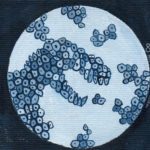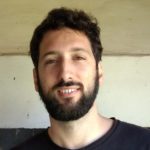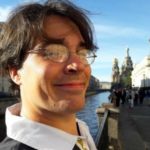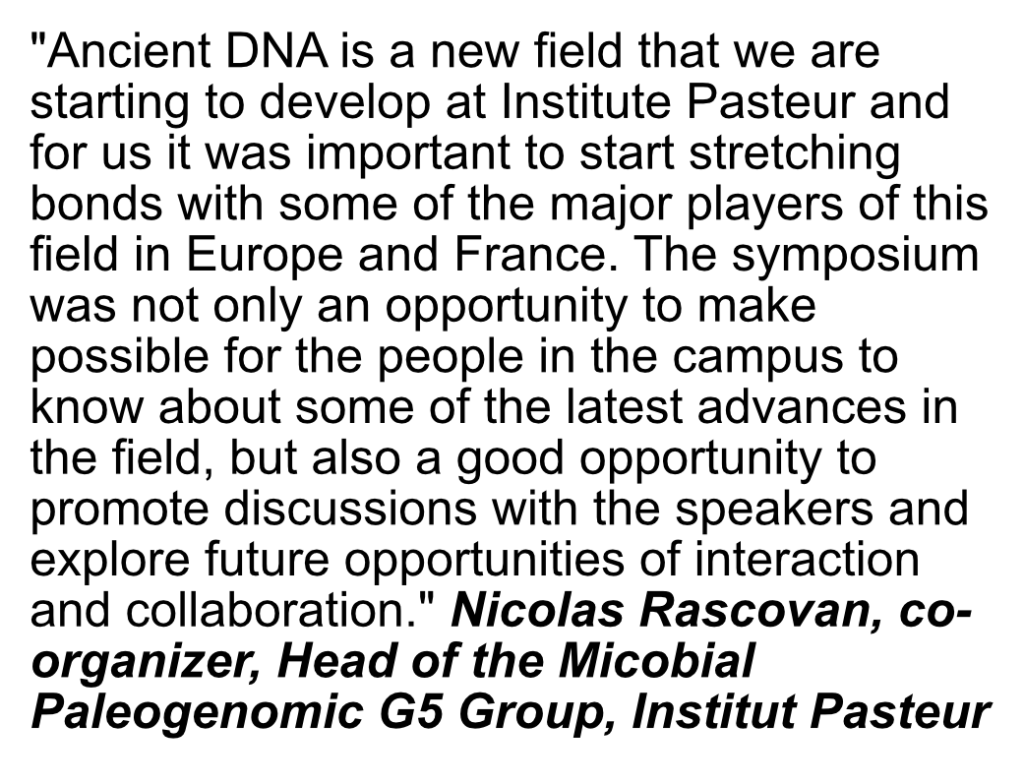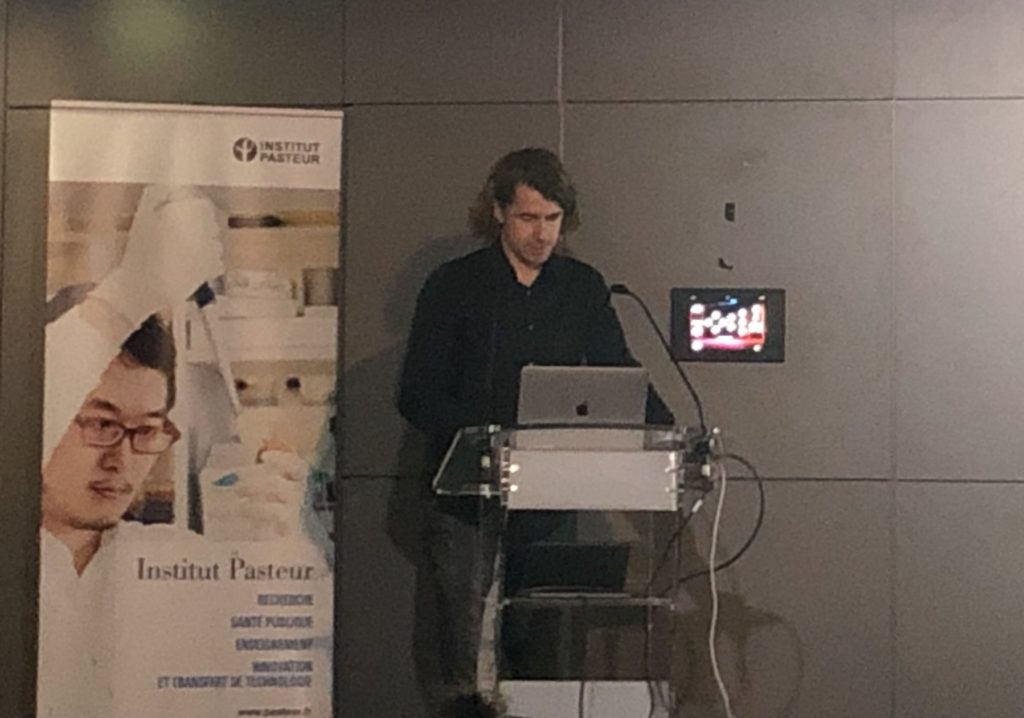The “Ancient DNA journey: from humans to human pathogens and microbiomes”meeting was an exciting event with great speakers sharing some of their latest results with the audience. Nearly 150 participants registered to participate on-site or on-line, curious to know more or even learn how studying ancient DNA can tell us about where horse domestication, a crucial step in human history, began (Ludovic Orlando, U. Paul Sabatier, Toulouse/CNRS). We could also follow ancient humans 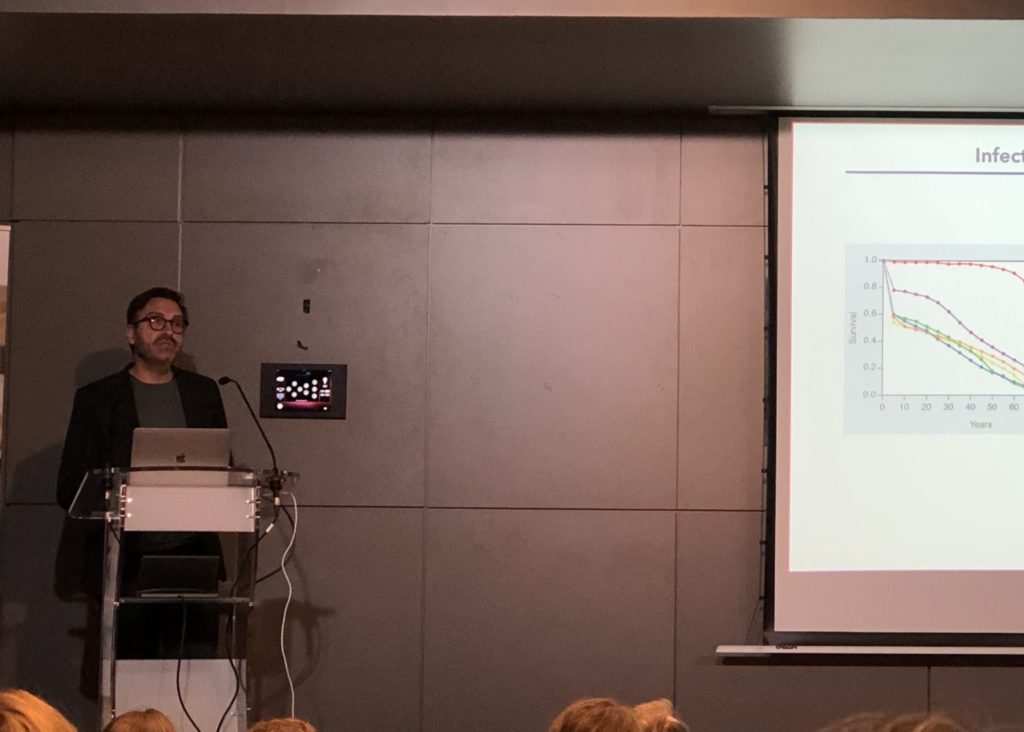 species DNA mixture during the colonization of South-East Asia and Oceania through the capacity of their immune system to fight microbes (Lluis Quitana-Murci, Institut Pasteur/Collège de France). Confronted to the ever-increasing quantity of data and how to exploit them, new methods are constantly needed.Flora Jay(U. Paris Saclay/CNRS) told us about a new way to represent geometrically data sets that is optimized for ancient DNA studies.
species DNA mixture during the colonization of South-East Asia and Oceania through the capacity of their immune system to fight microbes (Lluis Quitana-Murci, Institut Pasteur/Collège de France). Confronted to the ever-increasing quantity of data and how to exploit them, new methods are constantly needed.Flora Jay(U. Paris Saclay/CNRS) told us about a new way to represent geometrically data sets that is optimized for ancient DNA studies.
Studying ancient DNA is extremely powerful to observe the evolution of microbes in samples over 10000 years old. Thus, several examples of such studies were presented, from the evolution of the human gut microbiome (Cristina Warinner, Max Planck Institute, Germany) to the evolution of the Hepatitis B virus (Johannes Krause, Max Planck Institute, Germany), or the presentation of a model to interpret the evolution of Yersinia pestis and the dynamic of its
pandemics in the recent history (middle age to present days; Barbara Bramanti, U. Oslo, Norway/U. Ferrara, Italy).
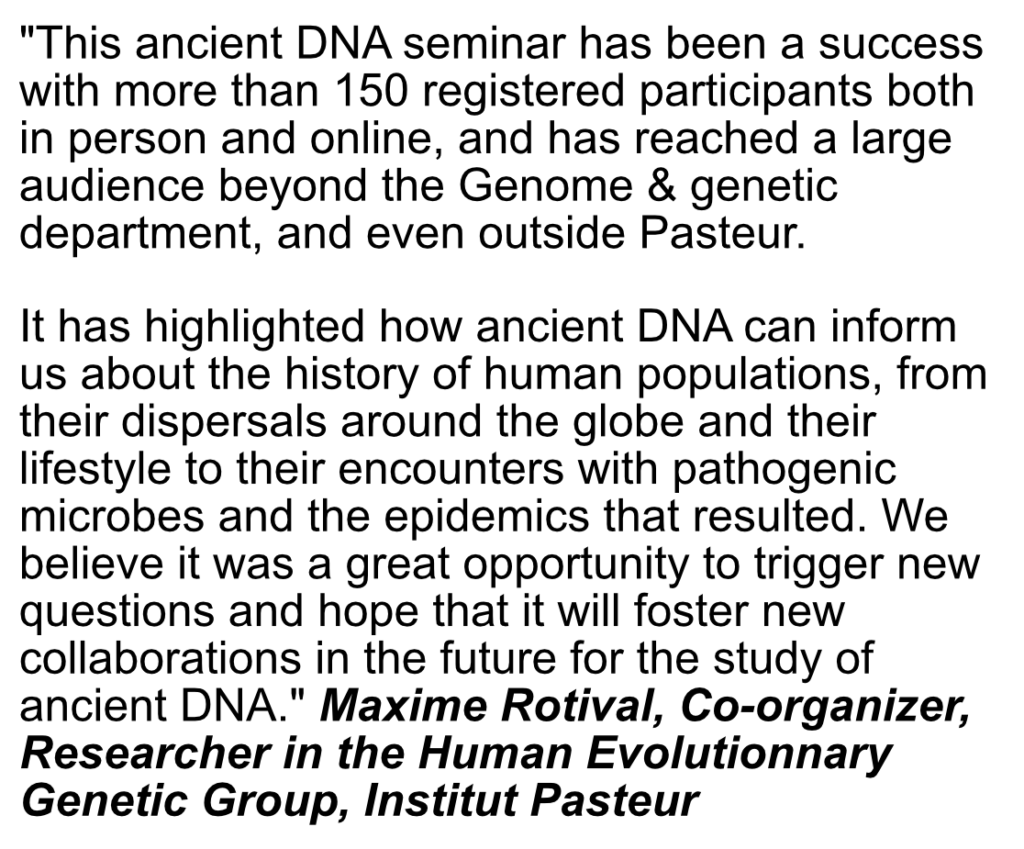 Finally, Simon Rasmussen (U. Copenhagen, Denmark) and Nicolas Rascovan (Institut Pasteur) explained how recent technological advances can help identify bacterial infections without any prior indication from the archaeological material and understand which factors contributed to the emergence of infectious diseases and how pathogens spread and evolved over the course of human history.
Finally, Simon Rasmussen (U. Copenhagen, Denmark) and Nicolas Rascovan (Institut Pasteur) explained how recent technological advances can help identify bacterial infections without any prior indication from the archaeological material and understand which factors contributed to the emergence of infectious diseases and how pathogens spread and evolved over the course of human history.
For Eduardo Rocha, Director of the Genomes and Genetics Department at the Institut Pasteur, this day dedicated to Ancient DNA is “of utmost interest for our department because ancient DNA is a vibrant field of research that can unravel past and future host-microbial interactions and unites historical strengths of the department in evolutionary genomics
, microbial and human genetics”.![]()
